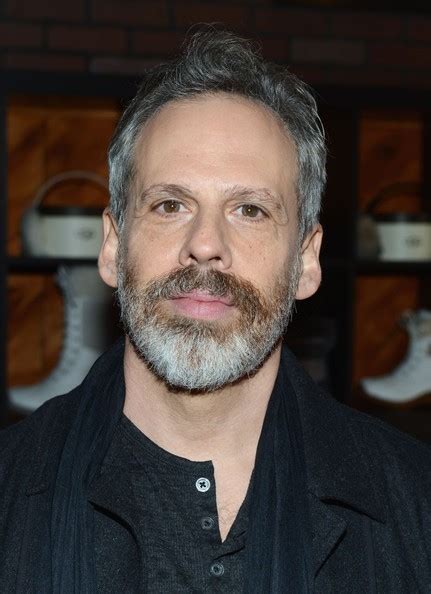A Quote by Isaac Asimov
One might suppose that reality must be held to at all costs. However, though that may be the moral thing to do, it is not necessarily the most useful thing to do. The Greeks themselves chose the ideal over the real in their geometry and demonstrated very well that far more could be achieved by consideration of abstract line and form than by a study of the real lines and forms of the world; the greater understanding achieved through abstraction could be applied most usefully to the very reality that was ignored in the process of gaining knowledge.
Quote Topics
Abstract
Abstraction
Achieved
Applied
Chose
Consideration
Costs
Could
Far
Form
Forms
Gaining
Gaining Knowledge
Geometry
Greater
Greeks
Held
However
Ideal
Ignored
Knowledge
Line
Lines
May
Might
Moral
More
Most
Must
Necessarily
Over
Process
Real
Reality
Study
Suppose
Than
Themselves
Thing
Though
Through
Understanding
Useful
Very
Well
World
Related Quotes
While we can learn or study techniques for almost anything we might want to accomplish, real understanding is not the mere accumulation of knowledge. Understanding cannot be realized by listening or reading about the realization of others. It must be achieved firsthand via substantive, direct perception in the moment.
Knowledge of Rome must be physical, sweated into the system, worked up into the brain through the thinning shoe-leather. ... When it comes to knowing, the senses are more honest than the intelligence. Nothing is more real than the first wall you lean up against sobbing with exhaustion. Rome no more than beheld (that is, taken in through the eyes only) could still be a masterpiece in cardboard - the eye I suppose being of all the organs the most easily infatuated and then jaded and so tricked. Seeing is pleasure, but not knowledge.
There's no real objection to escapism, in the right places... We all want to escape occasionally. But science fiction is often very far from escapism, in fact you might say that science fiction is escape into reality... It's a fiction which does concern itself with real issues: the origin of man; our future. In fact I can't think of any form of literature which is more concerned with real issues, reality.
Science, by itself, cannot supply us with an ethic. It can show us how to achieve a given end, and it may show us that some ends cannot be achieved. But among ends that can be achieved our choice must be decided by other than purely scientific considerations. If a man were to say, "I hate the human race, and I think it would be a good thing if it were exterminated," we could say, "Well, my dear sir, let us begin the process with you." But this is hardly argument, and no amount of science could prove such a man mistaken.
He knew very well that love could be like the most beautiful singing, that it could make death inconsequential, that it existed in forms so pure and strong that it was capable of reordering the universe. He knew this, and that he lacked it, and yet as he stood in the courtyard of the Palazzo Venezia, watching diplomats file quietly out the gate, he was content, for he suspected that to command the profoundest love might in the end be far less beautiful a thing than to suffer its absence.
The saying that a little knowledge is a dangerous thing is, to my mind, a very dangerous adage. If knowledge is real and genuine, I do not believe that it is other than a very valuable posession, however infinitesimal its quantity may be. Indeed, if a little knowledge is dangerous, where is a man who has so much as to be out of danger?
We scientists have fantasies of being uniquely qualified to make great discoveries. Alas, reality is cruel: most of us are replaceable. For the vast majority of scientific contributions, if scientist X hadn't achieved it that year, scientist Y would have achieved the same result or something very similar soon thereafter.
It is immediately apparent, however, that this sense-world, this seemingly real external universe - though it may be useful and valid in other respects - cannot be the external world, but only the Self's projected picture of it ... The evidence of the senses, then, cannot be accepted as evidence of the nature of ultimate reality; useful servants, they are dangerous guides.
Science only means knowledge; and for [Greek] ancients it did only mean knowledge. Thus the favorite science of the Greeks was Astronomy, because it was as abstract as Algebra. ... We may say that the great Greek ideal was to have no use for useful things. The Slave was he who learned useful things; the Freeman was he who learned useless things. This still remains the ideal of many noble men of science, in the sense they do desire truth as the great Greeks desired it; and their attitude is an external protest against vulgarity of utilitarianism.
Reality became for me a problem after my experience with LSD. Before, I had believed there was only one reality, the reality of everyday life. Just one true reality and the rest was imagination and was not real. But under the influence of LSD, I entered into realities which were as real and even more real than the one of everyday. And I thought about the nature of reality and I got some deeper insights.
Now that's a concept that's always fascinated me: the real world. Only a very specific subset of people use the term, have you noticed? To me, it seems self-evident that everyone lives in the real world - we all breathe real oxygen, eat real food, the earth under our feet feels equally solid to all of us. But clearly these people have a far more tightly circumscribed definition of reality, one that I find deeply mysterious, and an almost pathologically intense need to bring others into line with that definition.




































